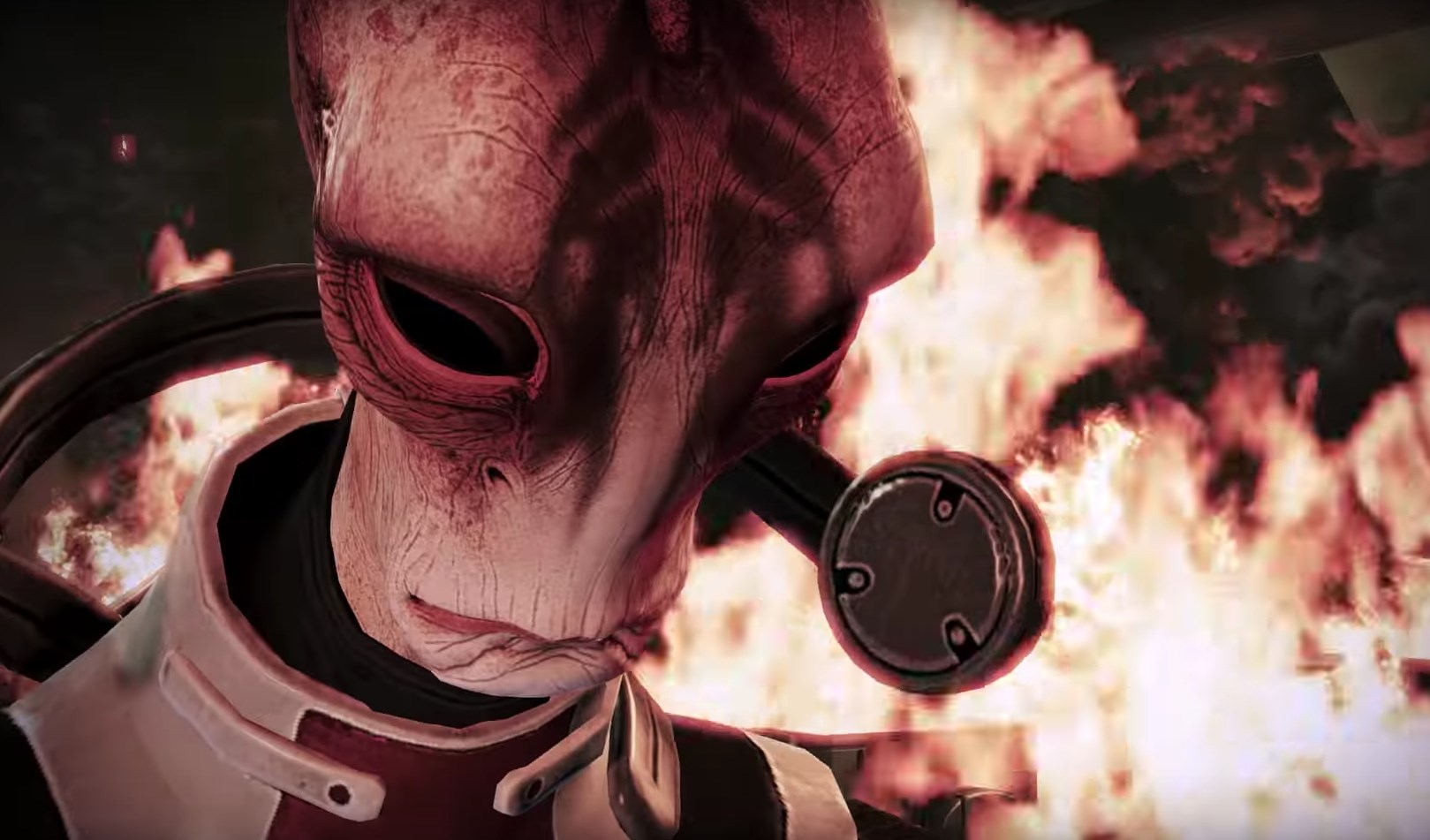EA could sell off studios after Saudi and Kushner-funded $55 billion acquisition, says former Dragon Age producer: 'It's hard to imagine that you'd have BioWare pivot from having very progressive messaging to having the reverse'
Also, the debt. The $20 billion debt thing.

Keep up to date with the most important stories and the best deals, as picked by the PC Gamer team.
You are now subscribed
Your newsletter sign-up was successful
Want to add more newsletters?

Every Friday
GamesRadar+
Your weekly update on everything you could ever want to know about the games you already love, games we know you're going to love in the near future, and tales from the communities that surround them.

Every Thursday
GTA 6 O'clock
Our special GTA 6 newsletter, with breaking news, insider info, and rumor analysis from the award-winning GTA 6 O'clock experts.

Every Friday
Knowledge
From the creators of Edge: A weekly videogame industry newsletter with analysis from expert writers, guidance from professionals, and insight into what's on the horizon.

Every Thursday
The Setup
Hardware nerds unite, sign up to our free tech newsletter for a weekly digest of the hottest new tech, the latest gadgets on the test bench, and much more.

Every Wednesday
Switch 2 Spotlight
Sign up to our new Switch 2 newsletter, where we bring you the latest talking points on Nintendo's new console each week, bring you up to date on the news, and recommend what games to play.

Every Saturday
The Watchlist
Subscribe for a weekly digest of the movie and TV news that matters, direct to your inbox. From first-look trailers, interviews, reviews and explainers, we've got you covered.

Once a month
SFX
Get sneak previews, exclusive competitions and details of special events each month!
Mark Darrah, a former producer at BioWare, has once more taken to YouTube to voice his opinions on the massive EA buyout. Which is more than fair enough, given the guy worked at BioWare for over 20 years, and has seen firsthand what EA's company culture did to not only his studio, but others.
Unfortunately, as he calls it, this whole thing's going to result in more industry layoffs. Ah, it's happening again.
The buyout is a leveraged buyout, which Darrah says means "EA is going to have an additional $20 billion of debt on its balance sheet. Obviously, adding $20 billion to your balance sheet is going to require you to pay a lot of interest. If we look at EA's current financials, they're netting out about $1.1-1.2 billion each year. If that $20 billion is sitting at a 5% interest rate, that's $1 billion of interest that needs to be paid every year just to service that debt."
He adds that, "for a company that's as historically financially conservative as EA, you're going to be looking for additional cost savings. And for a company where a majority of your costs come from people, that is likely going to mean layoffs and studio closures." The only reason you shouldn't imagine me pushing my head into my hands out of sheer frustration is because I'm using said hands to write this article.
But there's also another looming concern, given that the buyers in this instance involve both the Saudi Arabian government's Public Investment Fund (PIF), and Jared Kushner's Affinity Partners—Kushner being President Trump's son-in-law.
That's a two-pronged nightmare when it comes to human rights—the Saudi Government is often criticised for its human rights abuses, and the Trump administration has been taking aim at DEI (Diversity, Equity, and Inclusion) practices.
When it comes to the PIF's "sportswashing", that is, attempts to "cover over or distract from some of the legitimate human rights violations that have been levelled against the country", Darrah says, "It's hard to imagine acquiring a $55 billion media company … won't play into that effort.
Keep up to date with the most important stories and the best deals, as picked by the PC Gamer team.
"... If this is a PR move for the Saudi government as much as it is a financial one … what you might do is just come in and put your thumb on the scale and push their messaging in directions you want. In directions that make you look good, or at the very least steer them away from messaging that makes you look bad."
That's not to say the next Mass Effect game will be anti-social justice, though—since completely flipping the script would also be disastrous: "It's hard to imagine that you'd have BioWare pivot from having very progressive messaging to having the reverse—because it's what the government wants. It's hard to imagine that the public perception of a game that comes out of BioWare [that does that] isn't apocalyptically bad."
I'm generally inclined to agree—Dragon Age games have always been progressive for their time—but I think the cynic in me also says companies make ill-advised decisions based on vibes all the damn time. I'm inclined to agree with Darrah that a studio closure or sale is more likely: "You either have to decide that you're willing to just leave it alone, or you have to think that they don't fit anymore within the goals of this new organisation."
Which is more likely now, given the debt thing. Darrah explains that EA historically doesn't flog off its IPs because it's inherently risk-averse, as its higher-ups' "actual incentives are to do nothing." But as the deal closes, "those incentives could radically change … to shed costs or generate revenue if at all possible" to fight off the debt.
There's a small silver lining, though, however tiny. Going private, Darrah explains that EA will have to report its financials on a longer-term basis: "They can decide individually on their own terms what they want to see. If they want to see a studio go dark for 25 years in order to investigate some sort of radical new way to develop games? They can do that."
This might help avoid this "line must go up, very short term, three-month focus on the way that revenue works … it makes the studios very risk-averse."
It's a little like looking at a cup with a few drops of water in it and going 'Hey, this could be half-full at some point', as Darrah states that "in the short-term it almost definitely means a bunch of layoffs. In game studios, but also in financial and PR roles, EA is going to shed a bunch of people. That is definitely bad. In the medium term, it might mean studio closures … In the long-term, it's probably good for whatever EA still exists after the dust settles."
2025 games: This year's upcoming releases
Best PC games: Our all-time favorites
Free PC games: Freebie fest
Best FPS games: Finest gunplay
Best RPGs: Grand adventures
Best co-op games: Better together

Harvey's history with games started when he first begged his parents for a World of Warcraft subscription aged 12, though he's since been cursed with Final Fantasy 14-brain and a huge crush on G'raha Tia. He made his start as a freelancer, writing for websites like Techradar, The Escapist, Dicebreaker, The Gamer, Into the Spine—and of course, PC Gamer. He'll sink his teeth into anything that looks interesting, though he has a soft spot for RPGs, soulslikes, roguelikes, deckbuilders, MMOs, and weird indie titles. He also plays a shelf load of TTRPGs in his offline time. Don't ask him what his favourite system is, he has too many.
You must confirm your public display name before commenting
Please logout and then login again, you will then be prompted to enter your display name.



